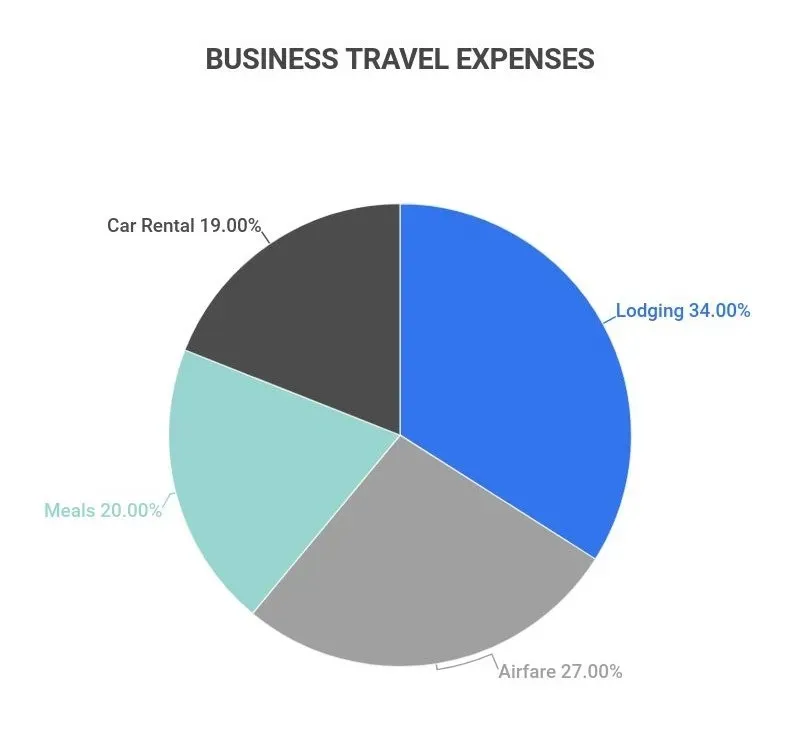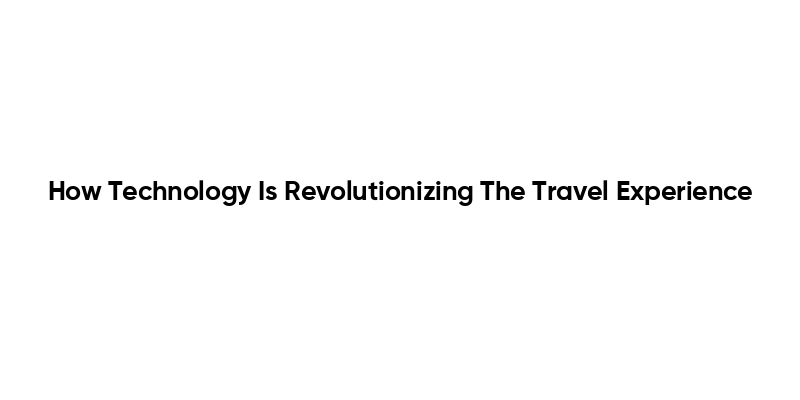Business travel spending is currently a focal point for corporations navigating the challenges of 2025, particularly amidst trade uncertainties that impact operational budgets. As outlined by the Navan business travel index, there has been a notable 15% year-over-year increase in corporate travel expenditures in the second quarter. This growth, while promising, falls short of initial projections by the Global Business Travel Association, indicating a shift in corporate travel trends that may alter the business travel forecast for 2025. With companies keen on adopting effective travel spending strategies, the balance between necessary travel and budget constraints will be crucial for future investments. The industry must remain agile as it adjusts to fluctuations, ensuring that spending aligns with evolving economic landscapes and the ongoing trade uncertainty impact.
In today’s corporate landscape, the allocation for travel expenses is under significant scrutiny, especially given the economic volatility. Organizations are reassessing their travel budgets and focusing on smart spending techniques, often referred to as travel allocation strategies. The latest reports suggest that even with a cautious approach, many firms are maintaining their commitment to business outings, driven by the need for face-to-face interactions. As the business world braces for a changing environment, the importance of adaptive corporate travel practices will become paramount. Understanding key metrics from sources such as the Navan business travel index can provide valuable insights into navigating these uncertain waters.
Business Travel Spending: Trends and Impacts
Recent trends reveal that while corporate travel spending is on the rise, businesses are increasingly cautious, largely influenced by ongoing trade uncertainties. According to the Navan business travel index, corporate travel spending activity saw a notable increase of 15% in the second quarter of 2025 compared to the same period last year. This growth aligns with a broader forecast by the Global Business Travel Association, which predicts that global business travel will hit $1.57 trillion in 2025. However, this positive outlook is tempered by a sense of caution among corporate leaders, who are navigating a landscape of economic unpredictability.
The cautious approach towards corporate travel spending reflects a strategic mindset amongst businesses, as they strive to balance growth and risk. The ongoing trade uncertainties are causing organizations to carefully evaluate their travel budgets and spending strategies. This shift in mindset signifies the importance of being resilient and adaptable in the face of economic fluctuation, while still prioritizing essential travel needs. Implementing effective travel spending strategies becomes crucial for these corporations to maintain operational efficiency without overextending their financial commitments.
The Future of Corporate Travel: 2025 Forecast
Looking ahead, the business travel forecast for 2025 indicates a more measured growth trajectory, even as organizations recognize the imperative role of travel in fostering relationships and driving business success. In the context of trade uncertainties, companies are expected to adopt more refined travel management practices to ensure that expenditures align with their strategic goals. This includes focusing on high-value trips and optimizing travel routes to enhance cost-effectiveness, ensuring that the growth in travel is both sustainable and purpose-driven.
Moreover, travel technology is anticipated to play a significant role in shaping the future of corporate travel management. Solutions that utilize data analytics, like those provided by Navan, can help companies make informed decisions about travel spending and strategic planning. With the continued evolution of digital platforms and tools, corporations will be better equipped to monitor and assess their travel patterns, leading to smarter travel spending decisions that align with the fluctuating economic landscape.
Navigating Trade Uncertainty in Business Travel
Trade uncertainty continues to loom large over the corporate travel landscape, impacting how organizations allocate budgets and strategize for upcoming trips. Many companies are finding themselves in a position where they must navigate potential disruptions while still ensuring their teams can meet vital business objectives. Cautious optimism is the name of the game, as organizations carefully assess how external factors may influence their travel plans and expenses.
To effectively navigate trade uncertainties, companies are emphasizing robust communication with travel partners and leveraging travel management platforms like Navan, which provide insights into market conditions and emerging trends. Businesses can better prepare for contingencies by analyzing data on flight and accommodation trends. This strategic approach allows companies to not only stay within budget but also remain competitive in an unpredictable market.
Travel Spending Strategies for Success
As businesses ramp up their travel activities while sailing through uncertain trade waters, refined travel spending strategies are paramount for success. Organizations are shifting their focus toward more comprehensive travel management solutions that not only streamline expenses but also enhance the overall travel experience for employees. This includes adopting policies that prioritize essential travel and provide clear guidelines on travel expenditures.
Moreover, fostering relationships with travel service providers can yield mutual benefits—ensuring companies receive the best rates and services while allowing service providers to understand and meet client needs. By implementing ground-up strategies that emphasize cost control, efficiency, and employee satisfaction, businesses can create a travel environment that supports their growth and resilience against changing economic conditions.
The Role of Technology in Business Travel
The integration of technology into business travel processes has dramatically transformed the way organizations manage their travel expenses and logistics. Platforms like Navan enable companies to access a wealth of data regarding travel spending trends, supplier performance, and employee preferences, allowing for more informed decision-making. As firms become increasingly aware of the impact technology can have on their bottom line, adopting innovative travel management tools will become essential in achieving their travel objectives.
Additionally, automation and digital solutions can enhance the efficiency of managing corporate travel, reducing administrative burdens and minimizing the potential for errors in bookings and expenses. Companies that leverage technology will not only ensure improved compliance with travel policies but also enhance employee satisfaction by simplifying the process of planning and executing travel itineraries.
Understanding the Navan Business Travel Index
The Navan Business Travel Index serves as a vital tool for organizations aiming to gauge current trends and shifts in corporate travel spending. By drawing on millions of transactions, the index provides key insights into spending patterns across various sectors, revealing how businesses are adapting their travel strategies in response to evolving market conditions. This index acts as a barometer for travel managers and executives to understand what’s happening in the marketplace and make data-driven decisions.
Moreover, the insights gleaned from the Navan index can help companies better forecast their travel budgets and align spending with overall business goals. As corporations strive to maintain strategic travel investment amidst economic uncertainties, resources like the Navan Business Travel Index become crucial for developing effective travel policies that respond to real-time market data, ensuring they are prepared for whatever challenges lie ahead.
Corporate Travel and Employee Engagement
Investing in corporate travel is not merely about spending money; it’s also about fostering employee engagement and satisfaction. Many organizations recognize the direct link between travel opportunities and employee morale, which can significantly affect productivity and retention rates. By strategically managing travel spending, businesses can provide essential travel experiences that motivate and inspire employees while still maintaining fiscal responsibility.
Additionally, creating a clear communication framework regarding travel policies helps employees understand the importance of their travel roles and how these experiences contribute to overarching corporate goals. This clarity can empower employees to take ownership of their travel responsibilities, enhancing not only their experience but also the effectiveness of the business travel process as a whole.
Trade Uncertainty and Corporate Decision Making
Corporate decision-making in the context of trade uncertainty requires a delicate balance between pursuing growth opportunities and mitigating risks. Business leaders must remain agile and responsive to changes in the geopolitical landscape that can impact travel plans and expenses. By closely monitoring trade trends and economic indicators, companies can better anticipate the challenges that may arise and take proactive steps to safeguard their travel investments.
Moreover, utilizing data from travel management platforms can empower decision-makers to craft tailored strategies that align with the current economic environment. Businesses that remain focused on leveraging insights to adapt their travel policies will not only safeguard their financial commitments but also enhance their ability to navigate unpredictability in the corporate travel landscape.
Conclusion: Adapting to the Future of Corporate Travel
As we look to the future of corporate travel, businesses are called to adapt their strategies in response to ongoing trade uncertainties and shifting market dynamics. The significant growth in corporate travel spending, as evidenced by the Navan index, underscores the importance of remaining committed to travel as a core driver of business success, even in challenging times.
Ultimately, organizations that invest in effective travel spending strategies, embrace technology, and maintain open communication with their travel partners will be best positioned to capitalize on upcoming opportunities while effectively managing potential risks. The path forward requires not just resilience, but also a proactive approach to corporate travel that prioritizes both organizational goals and employee satisfaction.
Frequently Asked Questions
How is business travel spending affected by corporate travel trends in 2025?
In 2025, business travel spending is projected to reflect ongoing corporate travel trends that indicate a cautious but steady investment. Companies are strategically increasing their travel budgets by 15% year-over-year as they navigate trade uncertainties, ensuring that they capitalize on essential travel without overspending. This means that while there is growth in travel expenditure, businesses are keen to adopt more effective travel spending strategies.
What impact does trade uncertainty have on business travel spending?
Trade uncertainty has a significant impact on business travel spending as corporations become more vigilant in managing their budgets. In 2025, while the overall corporate travel spending continues to rise, the growth rate is slower than earlier forecasts, indicating that companies are cautious. They are more focused on optimizing their travel strategies to ensure alignment with prevailing economic conditions.
What does the business travel forecast for 2025 indicate about travel spending?
The business travel forecast for 2025 indicates that global business travel spending will reach a remarkable $1.57 trillion, albeit with a slower growth trajectory than initially anticipated. This forecast reflects a blend of cautious corporate investments amidst trade uncertainties and an ongoing commitment to essential travel activities, influencing business travel strategies significantly.
What are effective travel spending strategies for businesses in uncertain times?
Effective travel spending strategies for businesses during uncertain times include prioritizing essential travel, leveraging technology for remote meetings, and negotiating corporate rates with service providers. Companies are encouraged to analyze their travel patterns and utilize tools like the Navan business travel index to refine their spending and adapt to changing corporate travel trends.
How is the Navan business travel index relevant to corporate travel spending?
The Navan business travel index provides valuable insights into corporate travel spending by analyzing millions of transactions to gauge spending trends and patterns. Released in mid-2025, this index highlights a 15% increase in corporate travel spending, showcasing its utility for businesses looking to understand market dynamics and adjust their travel strategies effectively amidst trade uncertainties.
| Key Point | Details |
|---|---|
| Overall Spending Growth | Corporate travel spending increased by 15% year-over-year in Q2 2025. |
| Global Business Travel Projection | Projected to reach $1.57 trillion in 2025, though growth is slower than previous forecasts. |
| Strategic Management of Expenses | Companies are cautiously managing business travel expenditures amid trade uncertainties. |
| Source of Data | Navan’s business travel index based on corporate transactions and spending analysis. |
| Executive Insights | CFO Amy Butte indicates that businesses intend to continue investing in travel despite caution. |
Summary
Business travel spending remains a critical aspect for many corporations, with a notable increase observed despite looming trade uncertainties. As businesses navigate these challenges, the focus is on strategic spending to ensure sustainable growth while still harnessing the benefits of travel for corporate success. The current increase in spending alongside caution reflects a balanced approach for companies looking to thrive in today’s dynamic market.



